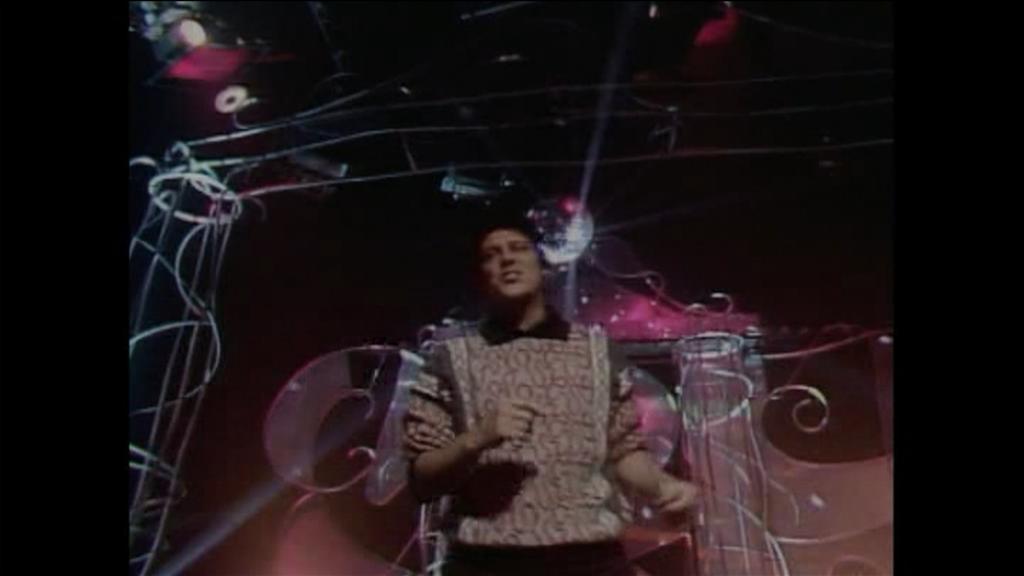How Shakin' Stevens' new album led him to the brother he never knew
- Published
Pop star Shakin' Stevens discusses how researching his family history for a new album led to some surprising revelations.
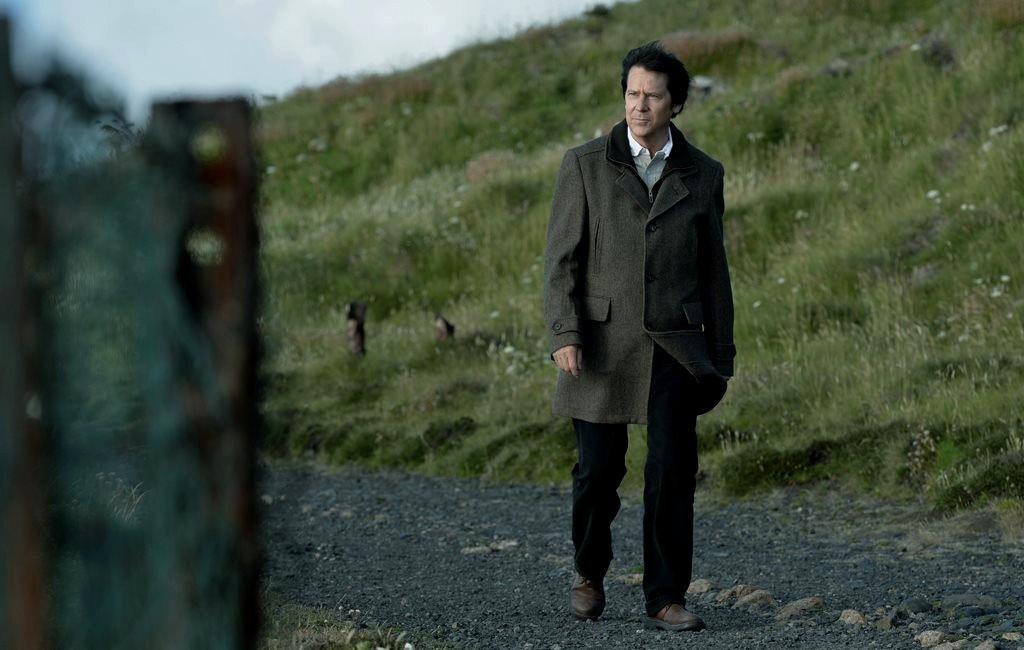
Shakin' Stevens: 'I knew nothing about my family'
Incredible though it may seem, Shakin' Stevens was the UK's biggest-selling singles artist of the 1980s.
He had 28 top 40 hits, including four number one singles - from the festive juggernaut Merry Christmas Everyone, to This Ole House - a song inspired by a grisly death in the US.
It was originally written by "singing cowboy" Stuart Hamblen, who found a dead body lying in a deserted shack while he was on a hunting trip with John Wayne.
The lyrics play with the gospel concept of the mortal body being a "house" for your soul, that gets left behind when you go to "meet the saints".
"I imagine people don't think about that when they dance along to it," laughs Stevens, reflecting on the first of his four number one hits.
But while he's fondly remembered for those 80s chart successes, Cardiff's answer to The King says he doesn't want to trade on his former glories.
"YouTube gets annoying when they keep putting up the old videos because I've been trying to move forward for a while," he says.
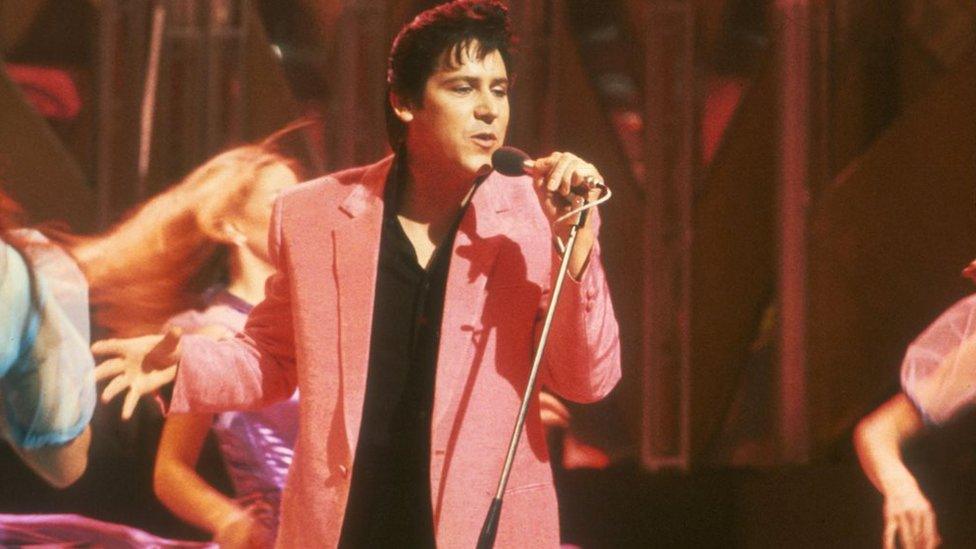
During his early career, Stevens was deliberately styled to look like Elvis
Key to that plan is Echoes Of Our Times, Stevens' first album in almost a decade.
Released last month, it's a rootsy, blues-inspired record that's aeons away from the denim-clad, hip-thrusting heart-throb of yesteryear.
"I've been using slide guitar, banjo, stuff like that for yonks," he protests. "But if people haven't seen me live on stage, they wouldn't have heard me with these instruments."
The songs earn their dark, rumbling arrangements by delving into Stevens' family history to tell some particularly harrowing stories.
Opening track Down In The Hole talks about his grandfather, born in 1865, who was sent to work in Cornwall's copper mines at the age of 10.
"The conditions were horrific," he says. "There was arsenic and God knows what else down there. Terrible, terrible, terrible."
The singer even visited the site of the mines, in Gwennap, to get a feel for the environment. There, he found pictures of the miners, external, who would spend an hour every morning climbing down a vertical shaft to work in the pitch black "with just a candle on top of their heads".
"They'd be down there for six or seven hours and then climb back up. And they'd be so tired at the end of the day, they'd fall off the ladder. It was shocking," he says.
Long-lost brother
The singer was prompted to look into his family's history by his partner and manager, Sue Davis.
He knew next to nothing about his parents and relatives, who stoically kept their personal problems to themselves.
"If my mum wanted to talk to her sister, she would say, 'go out and play'," he recalls. "Children were to be seen and not heard."
As he started examining birth certificates and electoral registers, the singer uncovered a few family secrets.
"I mean, I didn't know that my dad was married before he met my mum," he says.
"He was married for a year and he had a son. Even when I was grown up, that secret was still not let out."
Intrigued, Stevens tracked down his half brother and his father's ex-wife in Lincolnshire - but they were as tight-lipped as his parents.
"I said to them, 'We're not here for anything but a few stories,' but they showed us one photograph and that was about it, really."
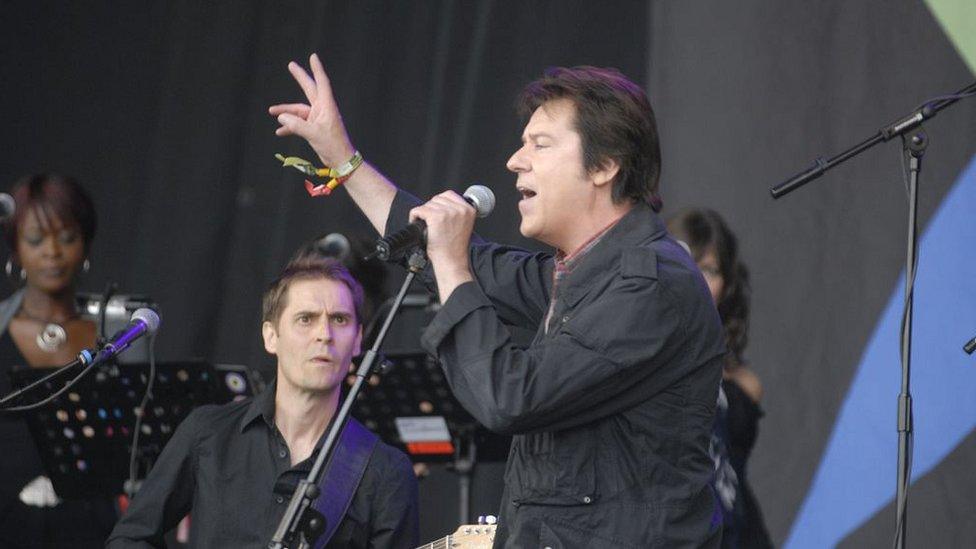
The star opened Glastonbury's Pyramid Stage in 2008
The singer doesn't blame his parents for keeping him in the dark. Their generation was simply more private, he says.
For example, his father, who was gassed in the trenches of World War One, never spoke of his experiences.
"He had medals in the drawer but all he would say is, 'they should give them to the people who died'," says Stevens.
He pays tribute to his father on Echoes Of Our Times's title track, singing, "We will always remember the sacrifice you made to hold the line".
The song also reflects on his uncle, who lied about his age to join the armed forces, and met a gruesome end.
"My uncle Leonard was a gunner in the artillery and he got blown up. It took him eight days to die. And his son was born 11 days after he passed, so that was horrific."
Making the album has given Stevens a more solid sense of his place in the world, he says. The exercise was so rewarding, in fact, that he delved further into his roots for a BBC Radio 2 documentary, Who Does Shakin' Stevens Think He Is?, broadcast this week.
Cramped conditions
Born Michael Barratt in 1948, Stevens was the youngest of John and May Barratt's 13 children, living in a cramped three-bedroom council house in Cardiff.
"There was no money at all. There were five in the back bedroom, sleeping head to toe. The room at the front was small, as well.
"We used to play 'jump in the hay' and 'ball in the street' and stuff like that. Basic, fun things. But we were happy, you know? We didn't know any better."
His musical education came from the records his eldest brother, Jackie, played on a "wind-up gramophone", to which the whole family would sing along.
After school, he worked as an upholsterer's apprentice, singing as he stuffed old armchairs, and then a milkman - but "all I wanted to do was sing".
"I was in several bands, and we just started off doing the clubs and dancehalls in the valleys - and eventually moved on to the colleges and universities."
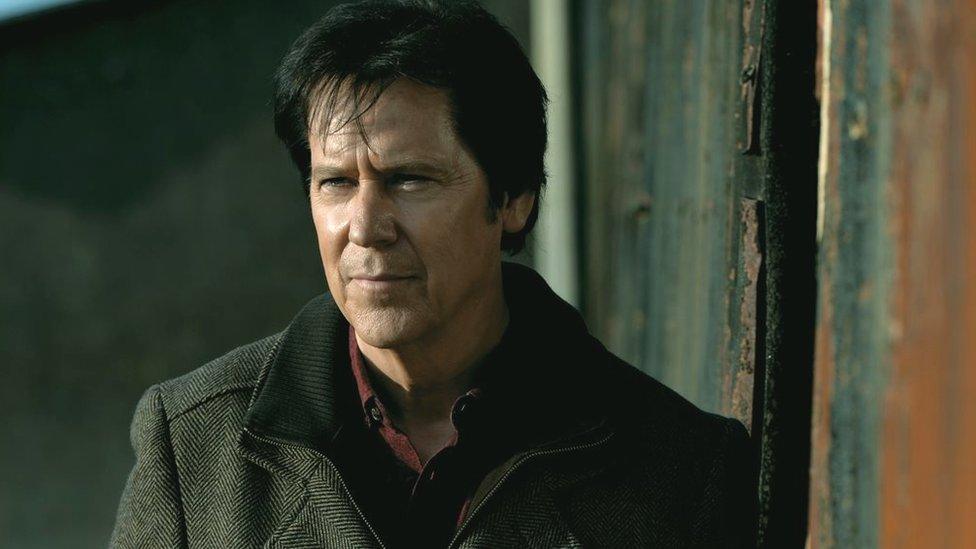
Stevens had a heart attack in 2010, caused by "strenuous gardening" but says he is fighting fit, and will play a 34-date UK tour next year
In 1969, aged 21, he formed Shakin' Stevens and The Sunsets, borrowing his stage name from an old schoolfriend, Steven Vanderwalker.
They supported the Rolling Stones in concert and were signed to John Peel's Dandelion record label, but their albums never troubled the charts.
Instead, Stevens' big break came when he was cast in the title role of Elvis, a West End tribute which won best musical in 1977.
Initially, he was worried the role would overshadow his own music - "but in the end I needed the money", he says.
"It was an incredible success. It ran for 19 months. Carl Perkins came to see it, so did Susan George and David Bowie. It was the biggest musical around at that time."
The show led to a solo career, which got off to a shaky start (no pun intended).
"I had a flop, then I had a hit, then I had a flop, and then I had This Ole House, which was huge throughout Europe and internationally," he says matter-of-factly.
Then aged 33, his success came late in the day - but he fought to sustain it, releasing three albums in just two years.
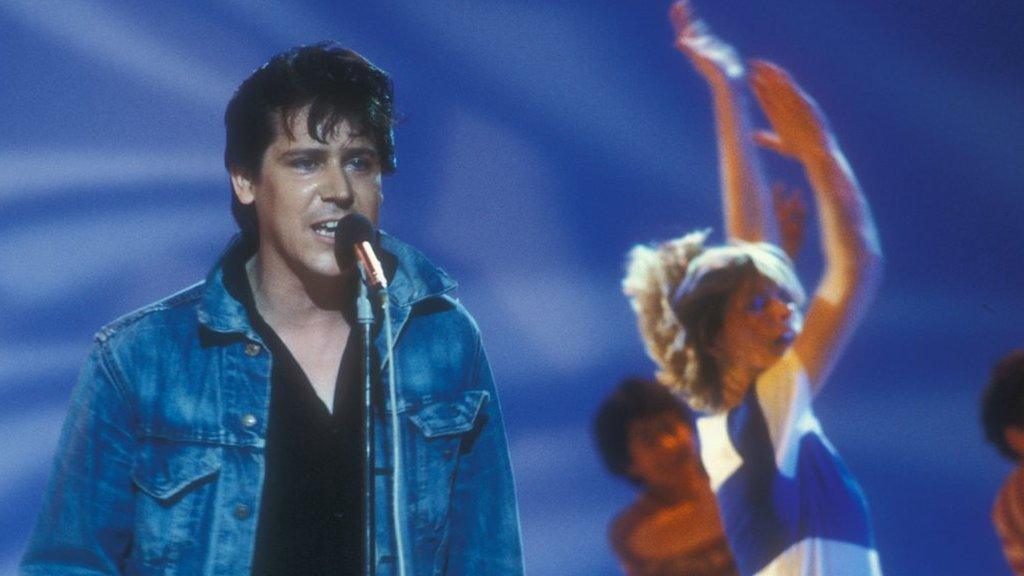
The star says Echoes of our Time is his "third chance" after two record company deals fell apart in the 2000s
However, he says he was still "naive" when it came to business decisions.
"On one of my albums, I'm wearing tuxedo on the cover," he cringes. "You do what your manager tells you, so you put this thing on even when it strangles your neck.
"And then they said, 'We're going to call it Give Me Your Heart Tonight' and the thing is, it gives the wrong impression.
"People see the tuxedo and think it's a different kind of music. What that record should have been called was 'Don't Judge This Album By Its Cover'."
The star looks back on the 1980s with a combination of pride and mortification.
"My first five albums, for what they were, I quite like them," he says. "But I've been trying and trying and trying to move on.
"You know, you look at your old holiday photographs and you think, 'oh no, did I look like that?'" he laughs.
"So my favourites are here," he says, tapping on the cover of his new CD. "This album here is very, very personal to me."
Echoes of our Time is out now. You can listen to the documentary Who Does Shakin' Stevens Think He Is on the BBC Radio 2 website.

Follow us on Twitter @BBCNewsEnts, external, on Instagram at bbcnewsents, external, or if you have a story suggestion email entertainment.news@bbc.co.uk, external.

- Published12 June 2015
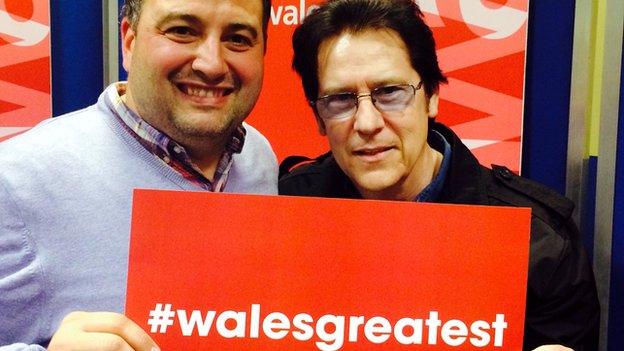
- Published24 December 2015
